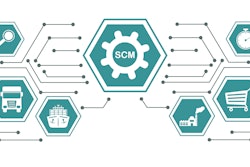
Our industry is rapidly changing. The last few years laid bare some of the vulnerabilities in our supply chain; while also teaching us valuable lessons about steps we can take to shore up resiliency and identify opportunities for optimization. When it comes to making the supply chain work, effective carrier management is critical to providing smooth and efficient product movement — and yet many of us take our freight partners for granted. Make no mistake: when it comes to being viewed as a shipper of choice, looking at your carrier management with a laser focus is critical. Strategic carrier selection, maintaining strong relationships, and carefully deploying appropriate technologies and software solutions are all key components. Here is a list of best practices to consider:
1. Becoming a Shipper of Choice
Carrier management involves the process of selecting, contracting, and maintaining a solid network of consistently reliable carriers. When choosing the right carrier partner, consider features and benefits that align with your business objectives. Establishing partnerships with carriers who meet your specific needs will lead to a stronger and more efficient supply chain. Remember that there are a limited number of options out there, and many companies are jostling to align with the best and most dependable carriers — ones that actually have drivers available and on the road. According to one statistic, the industry might be short by 160,000 drivers by the year 2030.
Having the best carriers on your side can also decrease your overall cost of business and improve day-to-day operations. If there are any issues during a shipment's lifecycle, carriers could charge more for their services or direct their business toward a shipper with a better reputation. Shippers can build trust with carriers by learning what practices frustrate them and course correcting to develop a mutually beneficial relationship.
2. Identifying and Maintaining KPIs
Identifying important KPIs (Key Performance Indicators) is integral in the carrier evaluation process.
These can include:
- On-time performance metrics
- Tender acceptance and rejection rates
- Invoice accuracy history
- Up-front pricing accuracy
- And intangible indicators of service quality.
Practices must keep up with what will lead to more efficient results yet ensure carriers can easily integrate technology and be confident using new and existing features.
Take transportation management systems, for example. Shippers looking to improve their transportation performance often buy a transportation management system or outsource their transportation planning to a managed transportation services (MTS) provider. Research by the ARC Advisory Group shows that among shippers that receive reductions in freight savings, transportation management system (TMS) and MTS performances are roughly the same, although TMS seems to be a less risky investment. Finding a proper transportation management system means focusing on planning, execution, fleet management, and ensuring carriers are well integrated with the system selected to avoid roadblocks.
3. Managing Risks
Managing risks and preparing for unexpected scenarios that can affect the shipper's transportation process can be leveraged with a dependable TMS, as they assist in planning, executing, and monitoring transportation activities. They can assess real-time data and analytics, compare potential scenarios and options, keep track of shipments, monitor KPIs, and generate reports and alerts. Contingency plans can also be created in anticipation of any sudden changes so surprises can be avoided and quickly addressed. Survey results featured in the “2024 Global Enterprise Resilience Report: When Forces Collide” showed that only 53% of organizations invest in necessary resources to develop and maintain programs to prepare companies for significant disruptions.
Focusing on carrier compliance, freight is to be shipped in accordance with any laws, regulations, and policies applicable to where the business is operated. The Carrier’s Code of Ethics demands that carriers do the right thing and refrain from unethical or immoral conduct. Non-compliance can result in fines, penalties, and potential legal actions that can significantly impact the reputation of a carrier and its financial standing. It’s a complex process but understanding its importance can protect businesses and set them up for long-term success. This makes operations more efficient, saves money and gives a leg up on the competition in a crowded marketplace.
4. Providing honest and constructive feedback
Providing honest and constructive feedback, showing appreciation for areas of strength, and openly discussing opportunities for improvement if a carrier is falling short of expectations is critical.
Often, counting on a smaller number of carriers, but awarding each a larger volume of business, can be beneficial. Be aware of carriers’ capacity. Confirm that your carriers can handle the shipment volume they are assigned. For instance, it’s often easier to find carriers that can handle standard rather than temperature-controlled or less-than-truckload (LTL) shipments. This means shippers must either diversify their transportation providers or partner with larger LTL providers that can handle the range of freight.
5. Being a Reliable Partner
As a shipper of choice, you will want to incentivize and reward carriers who show reliability and consistency.
According to the National Shippers Strategic Transport Council, errors occur in up to 10% of freight bills. Carriers should promptly update their TMS to avoid errors and prevent payment delays. In my own network, the faster proof of delivery is uploaded (ideally within five days of delivery), the faster carriers are paid, as payment terms begin with a proof of delivery. If paperwork is delayed by 10 or 15 days, so is compensation.
It’s indisputable that becoming a shipper of choice in today's rapidly evolving industry requires a strategic approach to carrier management. By prioritizing effective carrier selection, nurturing strong relationships and leveraging appropriate technologies, shippers can enhance their supply chain resiliency and efficiency. It's imperative to identify and maintain key performance indicators, manage risks proactively and provide honest feedback to carriers to foster a mutually beneficial partnership.
By being a reliable partner and rewarding consistency, shippers can optimize their operations and stand out in a crowded marketplace. In a landscape where the demand for reliable carriers is increasing while driver shortages loom, adopting these best practices is not just advantageous but essential for long-term success. By embracing these principles, shippers can navigate the challenges of today's supply chain landscape and emerge as leaders in their industry.















![Pros To Know 2026 [color]](https://img.sdcexec.com/mindful/acbm/workspaces/default/uploads/2025/08/prostoknow-2026-color.mduFvhpgMk.png?ar=16%3A9&auto=format%2Ccompress&bg=fff&fill-color=fff&fit=fill&h=135&q=70&w=240)
